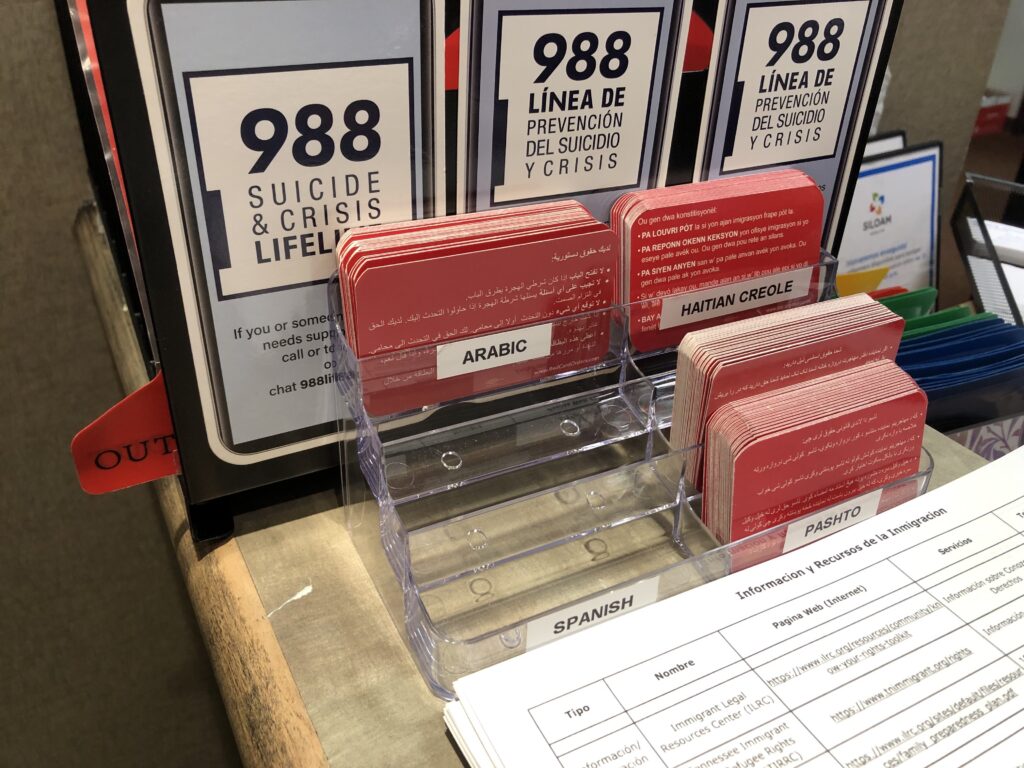
It’s just after 9 a.m. and Siloam Health in the Melrose neighborhood is already buzzing with activity. A chatty receptionist greets patients in English and Spanish. The busy central office area is lined with flags from dozens of countries.
“We wanted our patients to feel celebrated when they walk in,” says CEO Katie Richards.
She says the clinic’s demographics reflect Nashville’s large and growing immigrant communities: 6,500 patients annually, from more than 80 countries.
To build trust with these immigrants, Siloam maintains a team of specialists, translators and religious advisers on-site, many of whom are volunteers. Amy Richardson, who leads community outreach, says patients have been telling these workers that President Donald Trump’s promise of mass deportations has affected their day-to-day lives.
“We are hearing our provider team reach out to patients who don’t want to come in for particularly their preventative care appointments,” she says. “Some of our community health workers have had patients afraid to leave their house to go to the grocery store.”
It’s even affecting some patients physically.
“An increase in headaches, backaches, other stress related issues,” Richardson says. “We call those ‘psychosomatic’ — manifestations of their stress.”
Reducing this stress involves correcting misinformation these patients are hearing by word-of-mouth and on social media. But some of these fears are based in fact. Immigration and Customs Enforcement (ICE) says it will now enter schools, churches and hospitals to arrest undocumented immigrants. Staff are now conducting drills, practicing what they’ll do if ICE agents show up.
“If (agents) are going to our patients and talking to them, we want to make sure that we then come alongside them so that our patients know their rights,” says Richards, the CEO. “We also know that ICE officers are not allowed beyond public spaces. So as far as they could get without a warrant in our facility would be our waiting room.”
Despite this planning, morale at the clinic is still high. Richards thinks it’s partly because Siloam is faith-based.
“What we know through Scripture is that Christ’s priorities was caring for the poor, caring for the marginalized, loving people when they feel afraid,” Richards says, “and we want to continue to show up and to do that well.”

